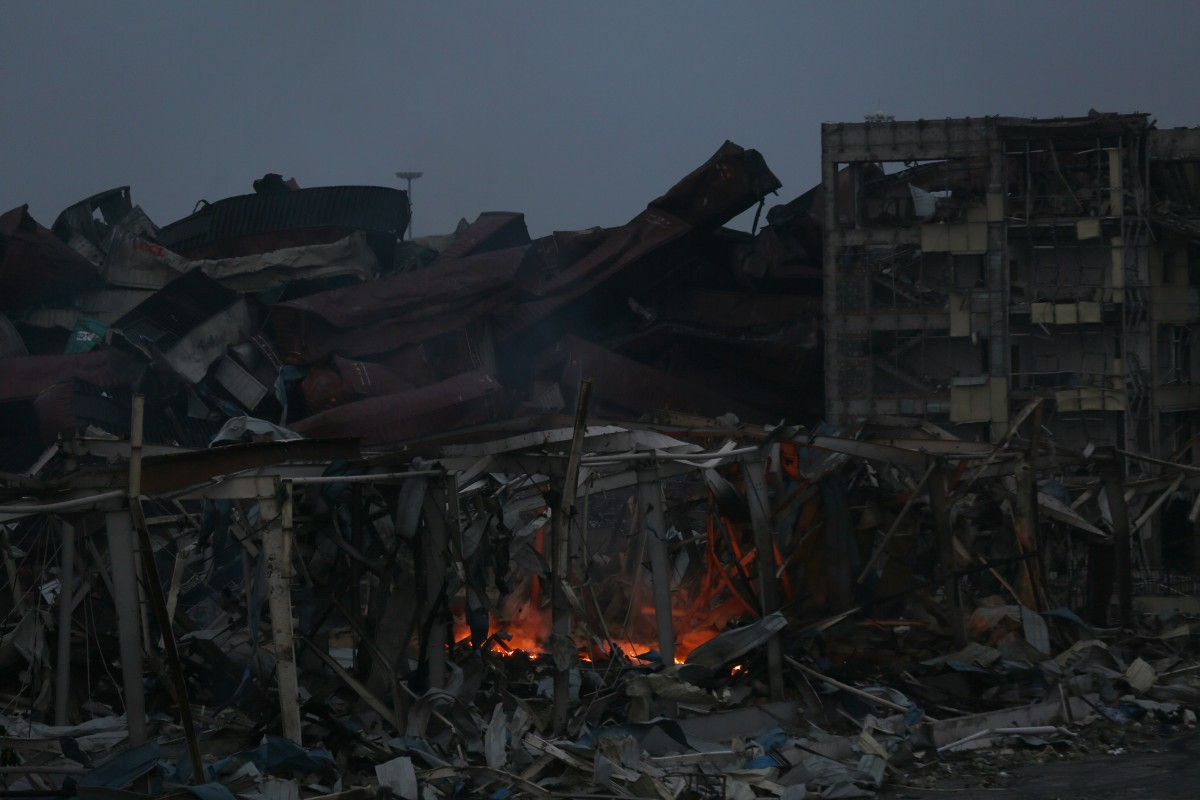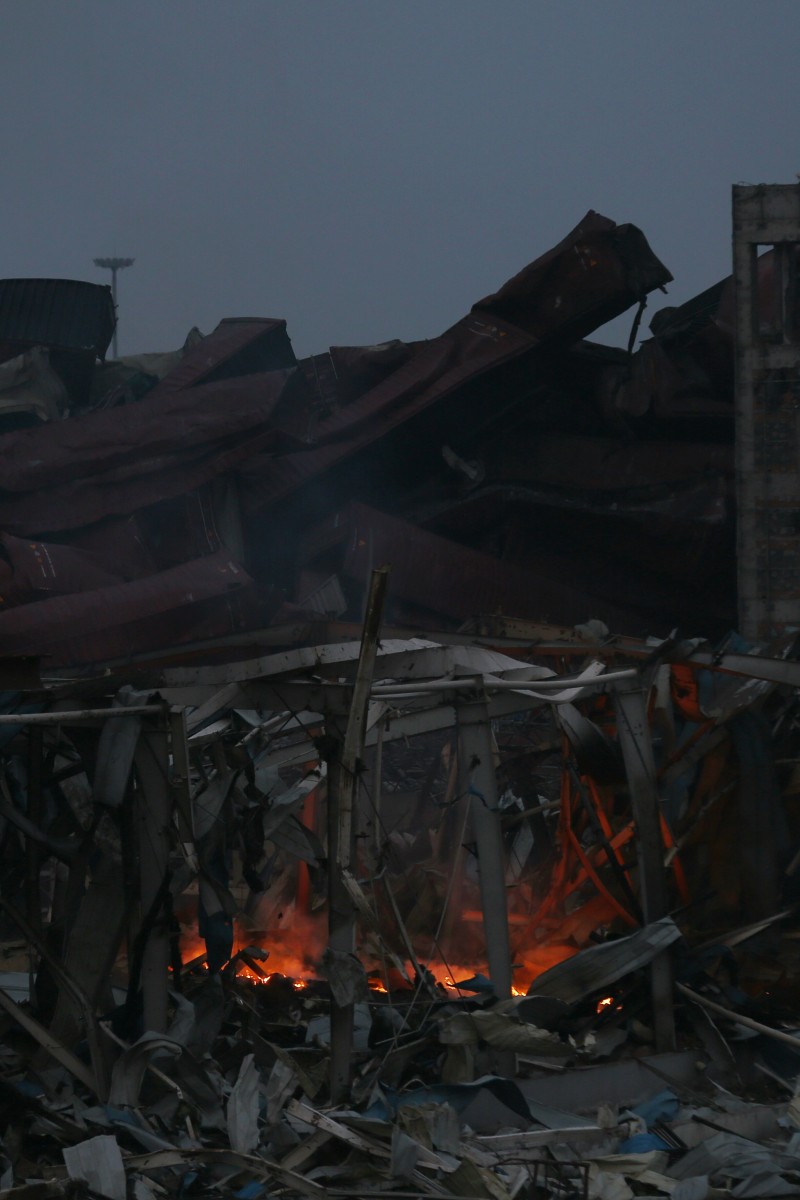 Debris in Tianjin was still burning today.
Debris in Tianjin was still burning today.Rain fell today on the remains of the Tianjin blast site. This makes it much more difficult to clean up the deadly chemicals that are at the site. It also makes people worry about water and air being poisoned after the explosions on August 13, which killed at least 114 people.
Around 700 tonnes of highly toxic sodium cyanide were at the site in the northern Chinese port of Tianjin, officials say, and water could disperse it more widely.
It could also spread chemicals on the ground into the air when it evaporates, and some of the many substances on the scene could react with it.
Officials have insisted the city’s air and water are safe, but locals and victims’ relatives are not so sure. Interational environment group Greenpeace has also urged transparency.
Out of 40 water testing points, eight showed excess levels of cyanide yesterday, all within the cordoned-off area and the highest 28.4 times official standards, said Bao Jingling, chief engineer at the Tianjin environmental protection bureau.
The chemical had been detected at another 21 points, he added.
Authorities have built a dam of sand and earth around the blasts’ central 100,000-square-metre "core area" to prevent chemicals leaking, Bao said, and drained water from pits and pipelines to make space for the rain.
Sodium cyanide, which has a variety of industrial uses including gold mining, is a toxic white crystal or powder. It can release hydrogen cyanide gas, used in gas chamber executions in the US.
Acute exposure at lower concentrations can still cause weakness, nausea and eye and skin irritation while chronic exposure can affect the cardiovascular and central nervous systems, according to the US Environmental Protection Agency.
"We are paying high attention to the rain forecast for the coming couple of days," Bao told reporters.
"We are making plans for the treatment of tens of thousands of tonnes of polluted water in the pit in the core area."
The air would be "closely monitored" at 18 testing points, and if excessive levels of cyanide or organic compounds were found the public would be quickly alerted, he promised.
At ceremonies in the city, officials and people in military uniforms bowed their heads to commemorate the dead, who numbered 114 by today, with 57 missing and 31 bodies not yet identified.
Sirens sounded across displays of white flowers - the colour of mourning in China. The seventh day after a death, including the day itself, is a traditional occasion of rememberence.
Outside the hotel where officials have been holding press conferences, a group of about a dozen homeowners seeking government compensation for their properties held yellow flowers.
"Some innocent people died in this explosion," said one man, a university teacher who declined to give his name. "We feel very sorry."
The protesters held a banner grieving for dead police, and signs with photos of their damaged residences reading: "Give back our homes!"
At the bottom, they said: "Respect for the souls of the brave departed," with images of three burning candles.
